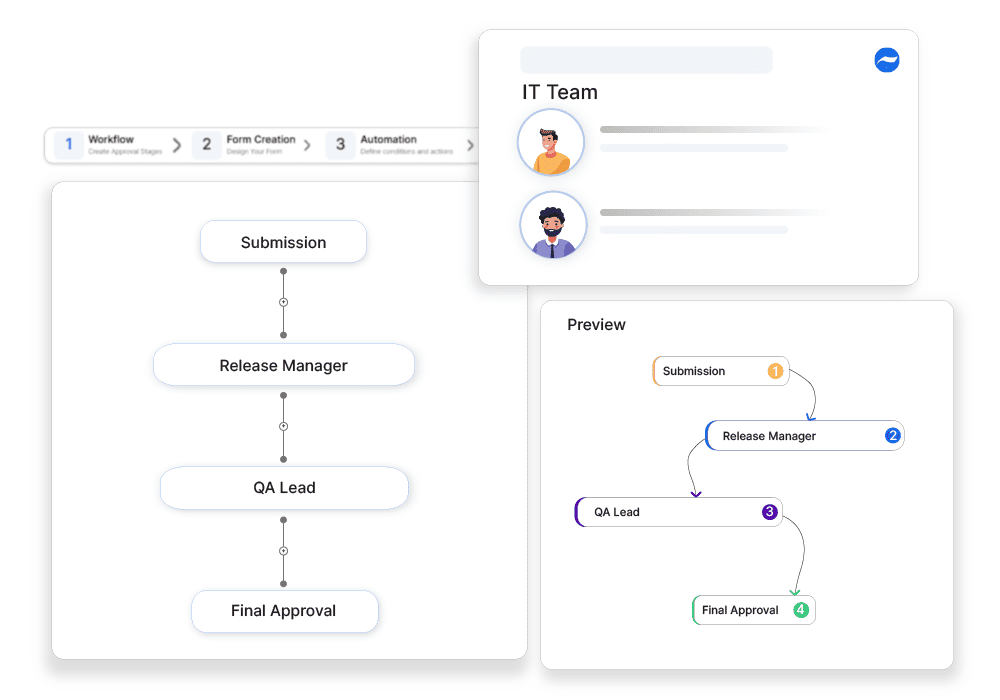Code Deployment Rollback Strategy Workflow
Automate rollback approvals to ensure seamless recovery from failed deployments.

Why automate?
Code rollbacks restore previous software versions when new deployments fail, ensuring business continuity and system stability. However, unapproved or unstructured rollbacks may cause data loss, broken dependencies, or extended downtime. Manual rollback approvals slow response times and introduce risk due to lack of validation. Without structured approvals, teams may execute rollbacks without assessing root causes, leading to repetitive failures. Cflow helps to automate Code Deployment Rollback Approvals, ensuring that every rollback request is properly reviewed, authorized, and executed based on business impact, reducing downtime and improving system recovery.
How Cflow Helps:
Approval-Driven Rollback Execution
Cflow ensures that all rollback requests go through structured approvals, preventing unnecessary reversions.
Compliance with Change Management Policies
Approved rollbacks align with IT governance standards, ensuring smooth transitions.
Faster Response to Deployment Failures
Critical rollback requests receive priority approvals, minimizing service interruptions.
Full Audit Log for Rollback Events
Cflow logs all rollback approvals, helping IT teams analyze failures and improve response strategies.
Frequently Asked Questions
What is a deployment rollback strategy?
A plan to revert applications to a previous stable state if deployment issues arise.
What are the main challenges?
Rollback delays, incomplete rollbacks, and data inconsistency.
How can it be improved?
By having versioned builds, database migration rollback plans, and fast rollback triggers.



